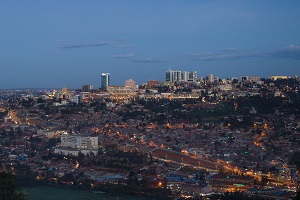Economy:
Rwanda's economy suffered heavily during the 1994 genocide, with widespread loss of life, failure to maintain infrastructure, looting, and neglect of important cash crops. This caused a large drop in GDP and destroyed the country's ability to attract private and external investment. The economy has since strengthened, with per-capita nominal GDP estimated at $909.9 in 2022, compared with $127 in 1994.
Major export markets include China, Germany, and the United States. The economy is managed by the central National Bank of Rwanda and the currency is the Rwandan franc; in December 2019, the exchange rate was 910 francs to one United States dollar.
Rwanda joined the East African Community in 2007, and has ratified a plan for monetary union amongst the seven member nations, which could eventually lead to a common East African shilling.
Rwanda is a country of few natural resources, and the economy is based mostly on subsistence agriculture by local farmers using simple tools. An estimated 90% of the working population farms, and agriculture constituted an estimated 32.5% of GDP in 2014. Farming techniques are basic, with small plots of land and steep slopes. Since the mid-1980s, farm sizes and food production have been decreasing, due in part to the resettlement of displaced people. Despite Rwanda's fertile ecosystem, food production often does not keep pace with population growth, and food imports are required,But in recent years, with the growth of agriculture, the situation has improved.
